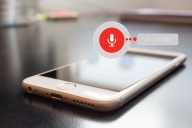New Delhi (IANS) While still getting acquainted with advanced technology, 68 per cent Indians are already smitten by digital assistants-enabled devices, according to a report.
According to the “State of Digital Lifestyles” report by US-based Cloud services provider Limelight Networks, 69 per cent Indians believe that technology has significantly improved their lives. It’s more than double the figure of what the US citizens believe.
As the popularity of smartphones is escalating, 86 per cent Indians confessed that they would not be willing to give them up for more than a day. Merely 4 per cent smartphone users are willing to give up the devices permanently in the country.
So used to screens, even majority desktop users in India don’t wish to let go of their dear screens. But 23 per cent people accepted they could avoid desktops for over a day.
Now that Internet-based services and latest gadgets have become an integral part of daily lives, people, despite their digital dependency, are scared of online frauds and breaches.
Over 61 per cent Indians are more worried about personal information being stolen online currently, than they were a year ago. About digital assistants, 46 per cent Indians have expressed concerns about data privacy.
“India is on a rapid growth trajectory in terms of digital adoption. More people are assimilating digital technologies into their day-to-day lifestyles as the perception continues to improve on the ground. With it, we are witnessing the rise of a new, digitally-empowered India,” said Ashwin Rao, Director – Sales (India), Limelight Networks.
In addition, 52 per cent Indians listen to digital music, 41 per cent download or watch movies and TV shows online. Around 90 per cent Indians have expressed frustration with digital content, but 88 per cent expect that 5G networking would bring faster download speeds.
Two-third of the Indian consumers, 67.2 per cent, prefer to shop online rather than choosing an offline medium, the report said.
The “State of Digital Lifestyles” report is based on responses from 4,500 people from India, France, Germany, Italy, Japan, Singapore, South Korea, the UK and the US.

